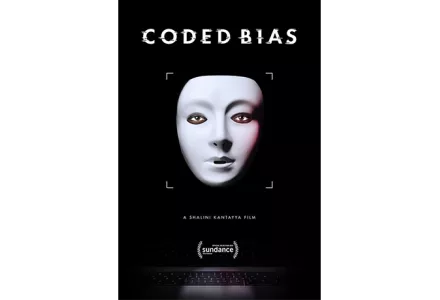Coded Bias: A Conversation with Filmmaker Shalini Kantayya
Coded Bias explores the fallout of MIT Media Lab researcher Joy Buolamwini´s startling discovery that facial recognition does not see dark-skinned faces and women accurately, and her journey to push for the first-ever legislation in the U.S. to govern against bias in the algorithms that impact us all.
In honor of Black History Month, join the Technology and Public Purpose Project for a virtual screening of the film, Coded Bias. The TAPP will host filmmaker Shalini Kantayya for a conversation moderated by Karen Ejiofor and Amritha Jayanti on Wednesday, February 17th at 12pmET.

